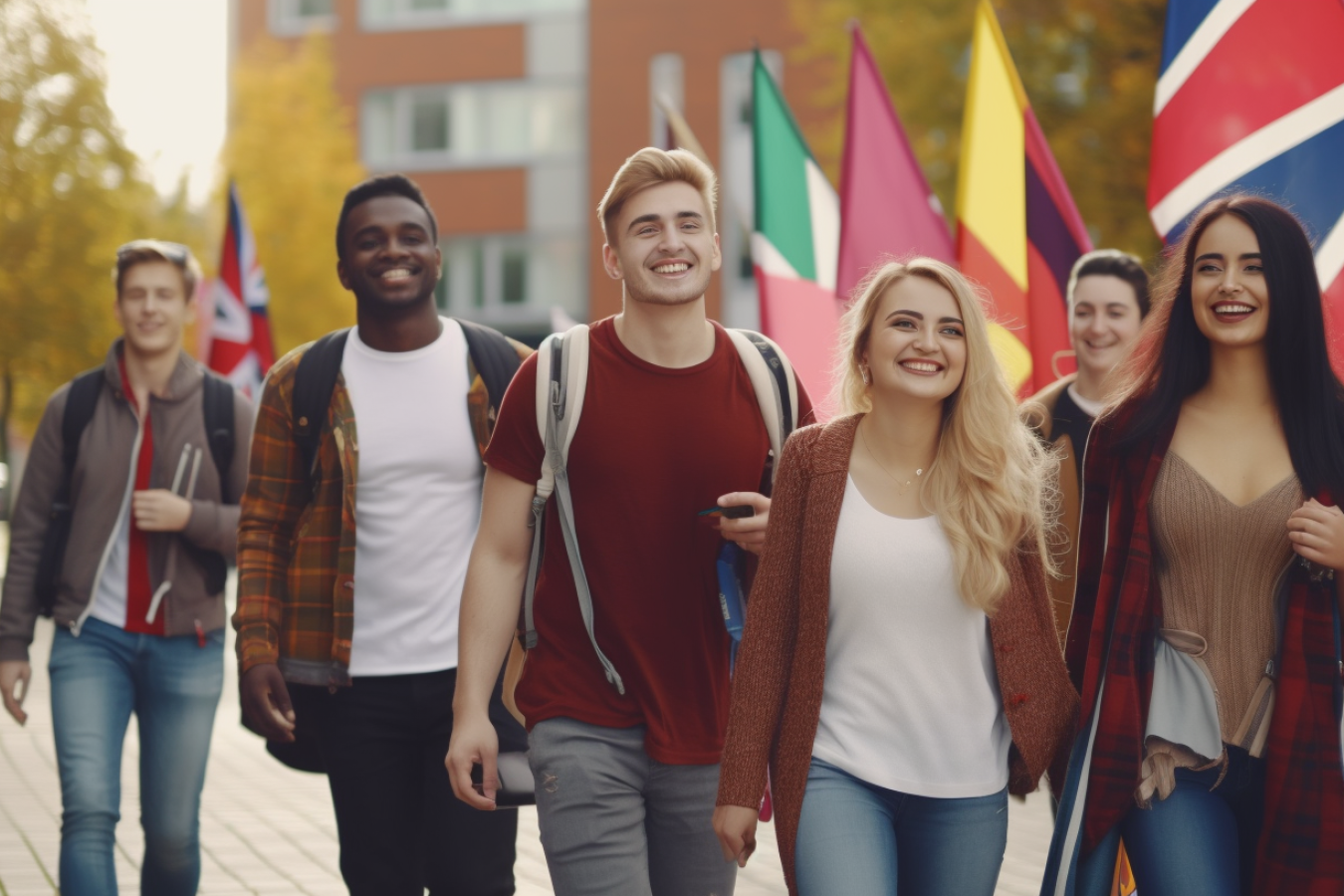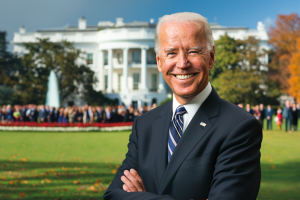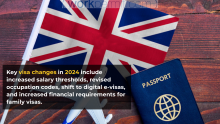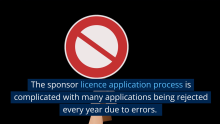Support migrant centric journalism today and donate

By Sanwar Ali:
1. Introduction
The United States, a global powerhouse and land of opportunities, is currently grappling with a notable decline in the number of international students enrolling in its universities. Several factors contribute to this trend, but the most glaring issues are the uncompetitive immigration policies and the high rate of visa denials by consular officers. This article delves into these issues, discusses their implications, and probes the urgent need for immigration reform.
2. The Impact of US Immigration Policies on International Student Enrollment
The international student population in US universities declined by approximately 15% or 164,727 between the 2016/17 and 2020/21 academic years. In contrast, Canadian colleges and universities experienced a 46% increase in international students, primarily fueled by Indian students. This disparity is primarily due to Canada's more liberal immigration policies, which allow for easier transitions from student status to work status and eventually permanent residence.
2.1 The Case of Indian Students
Indian students are a pivotal driving force in the rise of international students in Canada. The number of Indian international students in Canada skyrocketed by 324% or 135,294 between the 2016/17 and 2020/21 academic years. Conversely, the number of Indian students in the US decreased by 10% or 18,685 during the same period, further highlighting the benefits of more positive immigration policies.
2.2 H1B Visa Limitations and Green Card Delays
The US H-1B visa program, which allows U.S companies to employ foreign workers in specialty occupations, only allows entry of 85,000 people a year. Due to low annual limits, most H-1B registrations are rejected. Furthermore, the wait for employment-based green cards for Indians can take decades due to the per-country limit and the low annual number of employment-based immigrant visas.
3. Canada's Advantage Over The US
Canada's liberalized immigration policies make it a more attractive destination for international students. The country has launched a program to attract H-1B visa holders, with one such program reaching its 10,000 limit in less than 48 hours. This overwhelming response serves as a stark warning to US policymakers about the dissatisfaction of foreign-born IT professionals, scientists, engineers and others with the US immigration system.
4. Visa Denials: A Major Contributing Factor
The high rate of visa denials by US consular officers is another significant factor contributing to the decline in international student enrollment. In FY 2022, the refusal rate for F-1 student visas was a staggering 35%. Notably, the denial rate for African students rose to 54% in 2022; just over half of all African student visas were denied compared to 36% of Asian students and just 9% of students from Europe. This discrepancy is particularly concerning given the increasing significance of Africa as a vital region for the growth of international students.
5. The Dwindling Number of Chinese Students
Chinese students, who have historically represented a significant portion of international students in the United States, are also being affected. US consular officers continue to deny visas to Chinese graduate students based on their university of choice. This policy was first instituted by the Trump administration and continued under the Biden administration.
6. Recommendations for Improving the Current Situation
Experts recommend various measures to reverse this trend, such as increased training for consular officers, providing clear guidance for the consistent application of State Department policies, and offering greater transparency to students denied visas, including written explanations for the denial.
7. The Perspective from the Indian American Community
Indian American Congressman Shri Thanedar has voiced his concerns about the current state of America's immigration system. He expressed that the limitations in the system have made it challenging for tech companies to recruit the skilled workforce they need to push the economy forward. Echoing the sentiments of many, he called for an increase in H1B visas and a faster process for clearing green card applications.
8. Potential Developments in the Immigration Landscape
During a recent state visit to the US by Indian Prime Minister Narendra Modi, it was announced that Indian professionals could renew their work visas from within the US. This new policy could potentially mitigate some of the issues related to the H1B visa renewal process and is part of an initiative to boost people-to-people contact between the two countries.
9. Conclusion: The Urgent Need for Immigration Reform
The issues discussed in this article underscore the urgent need for comprehensive immigration reform in the United States. The current immigration policies are too restrictive, making it challenging for individuals to obtain work visas and leading to lengthy green card processing times. The decline in international student enrollment has had a significant impact on the US economy.
workpermit.com helps with US Work Visa: L1, H1B, E2, and O1 Visas
There are various types of US visas that individuals can apply for, depending on their circumstances. Some of the most common employment-based visas include:
L1 visa: This visa is for intracompany transferees who work in managerial or executive positions or have specialized knowledge.
H1B visa: This visa is for specialty occupations that require theoretical or technical expertise in specialized fields.
E2 visa: This visa is for investors who have made a significant investment in a US business and, management or essential skills employees. Only certain nationalities can apply.
O1 visa: This visa is for individuals with extraordinary abilities in the arts, sciences, education, business, or athletics.
Workpermit.com is a specialist visa services firm with over thirty years of experience dealing with visa applications. For more information and advice, please contact us on 0344 991 9222 or at london@workpermit.com(link sends e-mail)





















